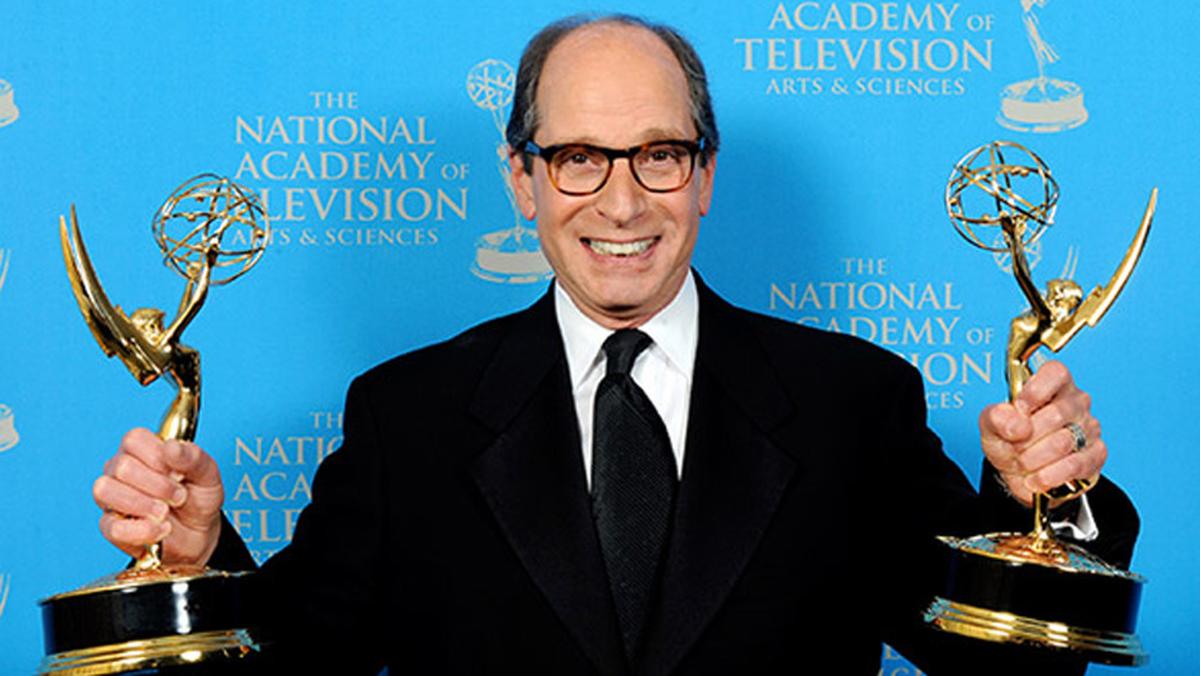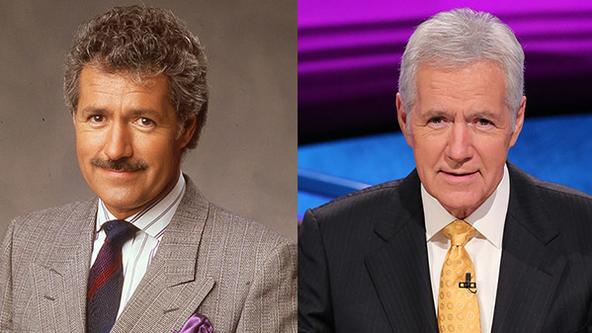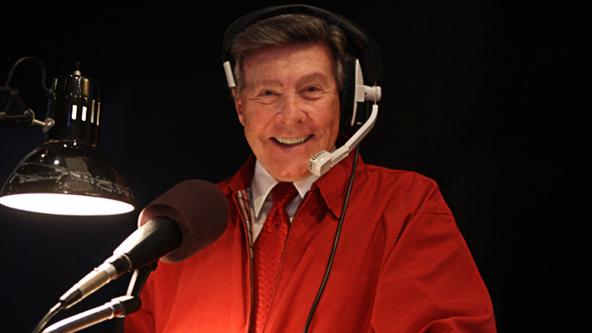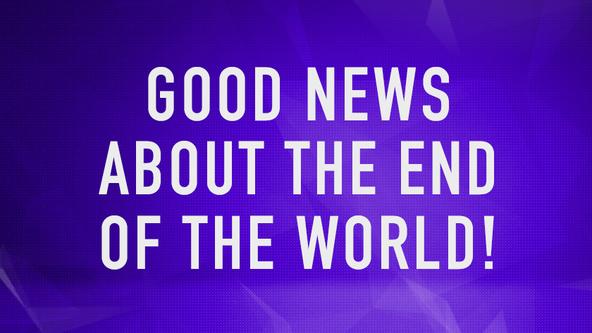Featured J!Buzz
It’s a weekday evening, right before dinner. The family gathers around the television to watch "Wheel of Fortune" and Jeopardy!, the two most successful and enduring game (and quiz) shows on air. But who is putting all of this together? Who steers the direction of these iconic shows?
The answer is a modest man named Harry Friedman, the executive producer of Jeopardy! and "Wheel of Fortune." We sat down with Harry to get a better picture of his life behind the camera and how he ended up in charge of these two shows for the past twenty years.
Friedman, 68, grew up in Omaha, NE and his love of television started at a young age.
“I’m a true child of television. I grew up as television was growing up. But I came up into the business from a completely different way. My father was a retail television dealer and TV repairman.”
Friedman’s family bought their first television in 1949. While the programming wasn’t plentiful, it caught the attention of a young Friedman and helped lead him to his current career.
“Most of the time it was one big test pattern. And you had to adjust the rabbit ears and some people put tinfoil on them. You had to stand in a certain way. It was in black and white. I know it sounds like the true dark ages, but it was a magic box. It was just magic. Starting to understand that I’m watching the image in my living room of someone who is talking to me from the other side of the country, from New York City. How’s that possible? No one understood the technology. All of us who became enamored with it early on understood the possibilities.”
The magic box wasn’t the only inspiration in Friedman’s life. A young Johnny Carson hosted a comedy show called "Carson’s Cellar" that also caught Friedman’s attention.
“This skinny, kind of irreverent kid from Nebraska… captured everyone’s imagination. There was something very fresh and unique about him.”
Friedman headed to Hollywood in 1971 with enough money to sustain himself for six months. He supplemented his income with side jobs, while looking for an opportunity to break into television writing and producing. His first break came through a series of connections built upon his candid nature, natural talent, and a bit of tenacity.
“I knew very few people out here. One of the people I knew I made contact with is a singer from Kansas City who moved out here to further her career. Her husband was a DJ. He came out here and got a job with KOST.”
"She was performing at a place called Ye’ Little Club in Beverly Hills. I went to see her act and she asked how was it. 'I could be honest with her and said I think you could use a little more patter in between songs.' I was writing some stuff for her and she tried it out. A friend of hers was there one night, a woman named Roberta Kent. I was introduced to her. Roberta said, 'I know someone who is a producer at 'Hollywood Squares', and they are always looking for writers. I think that would probably suit you pretty well'.”
Friedman would frequent the "Hollywood Squares" offices attempting to get his material seen. He eventually met with the associate producer at the time, and his material was well received. Friedman was hired as a freelance question writer at $5 a question.
"Hollywood Squares" bumped Friedman up to a full time writer, and then head writer. He later switched over to producing as an associate producer. Overall, Friedman spent 10 years at "Hollywood Squares" before moving on to try his hand at creating brand new shows. Though that was not always an easy road for Friedman.
“There were periods in between jobs. I think I was naïve to believe that being an Emmy award winning writer, with that experience and those credentials would get me work. If you stick with one type of television long enough, you get pigeon-holed.”
Friedman ended up with development deals at multiple productions houses and studios that kept him busy between 1982 and 1994. He eventually landed a producer role on a daytime talk show, "The Mike and Maty Show" on ABC.
“Right about that time, I was contacted by an old friend of mine who just happened to be running the studio, Alan Levine who was CEO of Sony Pictures Entertainment. He and Andy Kaplan were concerned that 'Wheel of Fortune' was getting stale. They were interviewing producers to see if there was something that could be done to breathe a little new life into it.”
Friedman interviewed against several other candidates and was offered the job in December of 1994. He started in March of 1995 as a producer on "Wheel of Fortune."
He had one thing on his mind as he accepted the job, “Don’t screw it up.”
Friedman is no stranger to innovation, and during his twenty-year career at both shows he added many new features to the shows without changing the core of either show.
“Probably the most important thing we do is keep in mind that the fundamental game has to be the same… but always keeping in mind that the home viewer has to be satisfied with the answer they get to the question ‘what’s in it for me?’ It has to either engage them in a different way or excite them… and can’t wait to watch again.”
Friedman joined Jeopardy! in 1997 and worked full time on both shows. "Wheel of Fortune" and Jeopardy! share office space and both are filmed on the Sony lot now, but that wasn’t always the case.
“I’m not even sure how I juggle it now. It was harder back then. The Jeopardy! offices were already here on the Sony lot. The Wheel offices were initially still in Burbank.
I had two offices, and I was running back and forth. Fortunately then, as is now, the supervising producers know what they’re doing. They’re really the best and really understand these shows. I knew early on that I could rely on them, but it’s hard to relinquish that direct involvement. They’re the best."
Friedman excelled in his work at both shows, and he was offered the executive producer role for both "Wheel of Fortune" and Jeopardy! just two years after coming to Sony.
“It was a huge vote of accomplishment, but it made me feel even more required to keep the shows fresh. There was nobody else I could point to, or that I was awaiting approval from so and so. The studio has been incredibly supportive of all of the changes that we’ve made, because we don’t do anything that’s a stunt. The audience will figure that out very, very quickly. And we don’t have to do that.”
Part of the changes Friedman made was leading the charge for Jeopardy! and "Wheel of Fortune" becoming the first syndicated shows to use HD.
“The audience did notice. A lot more than I ever thought they would. They couldn’t always identify what they liked about the shows, but they said the shows looked brighter, richer, and more alive. It’s true. It has been a terrific thing and put us ahead of the curve, which we like. ”
While Friedman didn’t originally have his sights set on game shows, he has enjoyed his ride as a widely successful producer and game show innovator. And a lot of that is attributed to the audiences.
“When you analyze it, game shows, unlike any form of television… game shows are the only shows in which the on-screen participants or actors or performers are drawn from the audience. It doesn’t happen in comedy. It doesn’t happen in drama. It doesn’t happen in sports. It doesn’t happen in anything. So the audience is the start of the show. That helps us tremendously. We get a lot of input from listening to and talking to the contestants. Because they’re also the viewers.”
So why is Friedman so unafraid of change?
“It’s exciting. It shows you can never stop or should never stop learning or trying new things. Because you might like it. It would be like having the same meal everyday for your entire life. You might like it, but it’s boring.”
Friedman has been well awarded for his efforts with twelve Emmys to his name and dozens more for both shows.
“The first one was for 'Hollywood Squares', and it was the first year of the Daytime Emmys. It was 1973. I wasn’t even there. It was a daytime award ceremony… and we knew that we had won… this really does sound like the dark ages. We got a telegram. A telegram, which I still have framed. Look how far we’ve come!”
After such a successful career on two of the top syndicated shows Friedman sees a future without limits.
“I always thought we would get to a point in this business that if you could dream it or imagine it, you could make it so, and I think we’re there. Where sometimes you think about the technology we have today, and the people we have to execute that technology, and the people that are constantly making it better. When you look at all the different releases of apps even, anything that furthers understanding and communication I’m all in favor of.”
For those of you who want to follow in Harry’s footsteps, he has a few simple tips: do your homework and be curious.
“The only thing I am sorry to see these days is there seems to be a lack of curiosity among a lot of the people who are trying to communicate with others or make it big in business. They don’t do their homework. But they also aren’t curious about the way things work or things outside their own little world. I think if you’re going to work in a global business, you have to understand not only the world of television… but also worldwide television. Trends, tastes, and cultural influences. I also think you have to know what’s going on in the world. You can’t just click off the news and say that doesn’t concern me. Well, if you talk to any of the Jeopardy! writers, they’ll tell you differently. You have to be informed. “
When asked about the future of the shows, Friedman was very open and visibly excited about the possibilities.
“We’re finding more and more ways to connect people with our brands. They’re finding it because we’re offering it to them. We’re not trying to force them to do anything. If you want Jeopardy! on your smartphone, fine, you got it. You want it on your tablet fine, you got it. You don’t want it on your TV, you want to be a cord cutter? We’re going to be streaming in sync with the broadcast, which we already do in many markets. “
And finally, what’s next for Wheel of Fortune and Jeopardy!? Friedman chuckles before telling us:
“You have to watch.”





